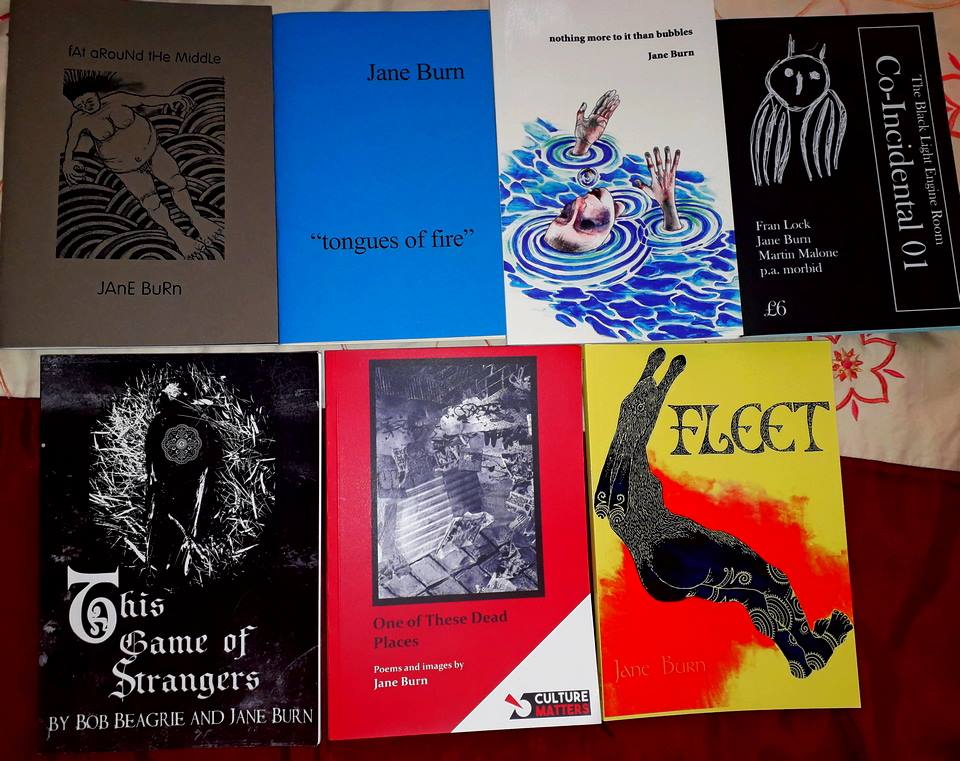
JANE BURN – POETRY AS HARD GRAFT, INSPIRATION, REACTION OR EXPERIMENT?
I interviewed poet & artist Jane Burn who won the Michael Marks Environmental Poet of the Year 2023-24 with A Thousand Miles from the Sea.

In the second part of my interview with poet Hannah Linden, winner of the Café Writers Poetry Competition, I asked her about her compositional methods, working with other poets and what she has learned about herself through being a poet.
Leslie: What’s your compositional and editorial process? What habits/quirks/rituals/approaches do you use to keep up a high standard of writing?
Hannah: A lot of my publishable poems are not very far away from their final form when I write the first draft. I think this is because I’m editing as I go. For example, looking up a word I’m thinking of using (for it’s second, third or fourth meanings or even checking it in the urban dictionary) means that I’ve often considered it deeply before it even enters the poem. I do this with simple everyday words as often as for more obscure ones. And, when I’m in the flow of writing, for example, during Poem a Day challenges which I do twice a year, I write many, many poems very quickly and most of them are never published beyond sharing them with other people in these groups. Some poems continue to interest me and others don’t. It isn’t a conscious decision, but a lot of poems are prototypes, I think, and, rather than editing them, I will find myself writing them from scratch in a different form later.
In terms of detailed editing, I first start by removing quirks like the word ‘that’ and, since working with Sarah Leavesley I’ve discovered a few more ‘habits’ that I’ll pounce on. Then I’ll look for cliches, if they’ve somehow pushed their way in. Then I’ll try changing the order of stanzas, mess with line breaks, try different stanza forms, try a formal structure to see if that works better etc. I then question all the verbs to ensure I’ve chosen the best one. I think about texturing the poem, if there’s a straightforward unforced way to do that eg an alternative word that still works but adds assonance, connotational echo, sculptural balance etc. I spend a lot of time on line breaks and there’s often a very deliberate reason for them in my poems. I like that a line can be taken as a separate entity and feed back onto itself, for example.
I often come back to the way I originally wrote the poem but it often helps to have given the poem a little workout, even if it only convinces me that it was right initially. But there are poems that have been through years of editing before I’m happy with them, eg Mindstrap took me over twenty years to finalise. Child was written in about fifteen minutes and only had very minor tweaks before I felt it was done.
I also try to read very different kinds of poems to my own. This upsets me a lot because they’re doing something I don’t do, can’t do and often long to do. I interact with them, respond to their content, form, tone etc and my style shifts a bit or reinvents itself. I’ve been doing ModPo (a free MOOC course with Pennsylvania University) for the last three years and that’s made me question everything I do. I’m in a semi-hibernation state at the moment whilst I process that experience. Meanwhile, I’ve been doing some collaborative writing which is very different to my personal way of working and that’s been very rewarding.
Leslie: What are the main ways you’ve helped other writers and benefitted from their help?
Hannah: I’ve been a member of the same Poem a Day group for about 12 years now so everyone there knows the different styles and content that I explore. I was also in the 52 group who worked intensively for about 16 months and many of my close poetry friendships were forged there too. I can’t afford to pay for many courses or mentoring so I rely on the people from these groups for support and insight. So many poets are very generous with their encouragement and focused feedback and I’m so grateful for that. I have a couple of people who I share poems with by zoom or on the phone, too. This isn’t so much for detailed feedback but more to feel out how the poem works (or doesn’t) when read out loud. And to ‘feel’ like a ‘poet’, I guess. When I go through fallow periods and don’t do this, I feel like an imposter poet.
I make a point of trying to read the poems people are sharing and offer some support. I’m wary of giving detailed feedback on new poems because I don’t want to accidentally get in the way of the poet’s own editorial processes. Some people do send me their work for detailed feedback when they feel ready for that. The challenge there is to try to help someone express their own vision, rather than imposing your own taste and ways of expressing yourself. Collaborating with other poets (for example, with a few women from very different cultures) has helped me to recognise just how differently we all use language and connotation so I try to be mindful of that when I’m ‘helping’ other people with their work.
I’ve also been a steward at poetry festivals but in a background role, washing up etc… doing the jobs that facilitate the events but that are not high profile. I think poetry events are really important and I’m feeling the loss of face-to-face contact since the main festival I worked with has closed shop. Given lack of finances to travel far, I go to zoom readings to share a poem or, more often, to be part of the audience for other poets and cheer them on.
Leslie: What have you learned about yourself through being a poet?
Hannah: I’ve learnt that the best of me is in my poetry! I’m much wiser, more succinct and more insightful in poetry than I am in real life (or when writing prose). But that’s ok. It’s a source of great solace to me that my subconscious knows things that I’m not otherwise able to access.
My poetry has helped me to make major life decisions that I hadn’t been able to see clearly before a poem (or set of poems) clarified things for me.
I’ve also learnt that we’re all much less alone than we can sometimes feel we are. Poetry places our personal experiences within an empathetic web of connections. A line resonates across a semantic thread and reaches across empty space to someone else who, though their experience may be very different, ‘feels’ our unique vibration with recognition, acceptance and sometimes profound gratitude. Poetry enables a particular form of love between writer and reader/listener and this can be a connection with people from far away, both physically and historically.

Writing (and reading) poetry has placed me ‘inside’ rather than feeling ‘outside’. This is something I never expected to experience when I was growing up, or even as an adult going through some very difficult and isolating experiences. It’s ironic that poetry, which can sometimes feel undervalued as an art form, can simultaneously demonstrate that everyone’s experience is valuable when it is transformed into poetry. Coming from a very poor working-class background, this has also enabled me to cross the social barriers that can often be very restrictive and reductive.
Most importantly, the deep friendships that I’ve made through sharing poetry have been fundamentally reassuring to me in regards to my sense of self-worth. I hadn’t realised, until I came into the poetry world, how much I needed that kind of intellectual, creative and emotional reassurance. Readers of poetry, in my experience, offer a level of attention, respect and patience that is quite rare, I think, in modern life. I’ve learnt that I do have a valuable part to play and that this is true even when I feel at my lowest. Poetry has helped me to transform even very difficult emotions. As I write in The Good Mother’s Guide to Healthy Cooking During the Apocalypse, I’ve learnt to
‘Never throw away the trimmings, ….
Don’t waste any mess you’ve made of your life.’
Next week I interview groundbreaking modern artist Stuart Jones.
ABOUT LESLIE TATE’S BOOKS:

I interviewed poet & artist Jane Burn who won the Michael Marks Environmental Poet of the Year 2023-24 with A Thousand Miles from the Sea.
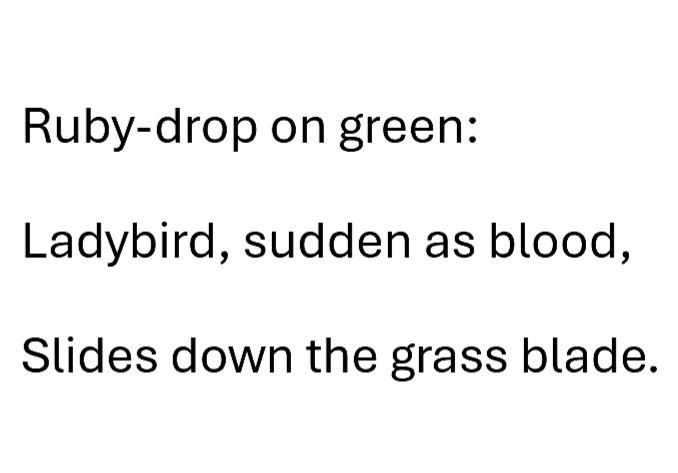
I interviewed ex-broadcaster and poet Polly Oliver about oral and visual poetry, her compositional methods, and learning the Welsh language. Polly says, “I absolutely love
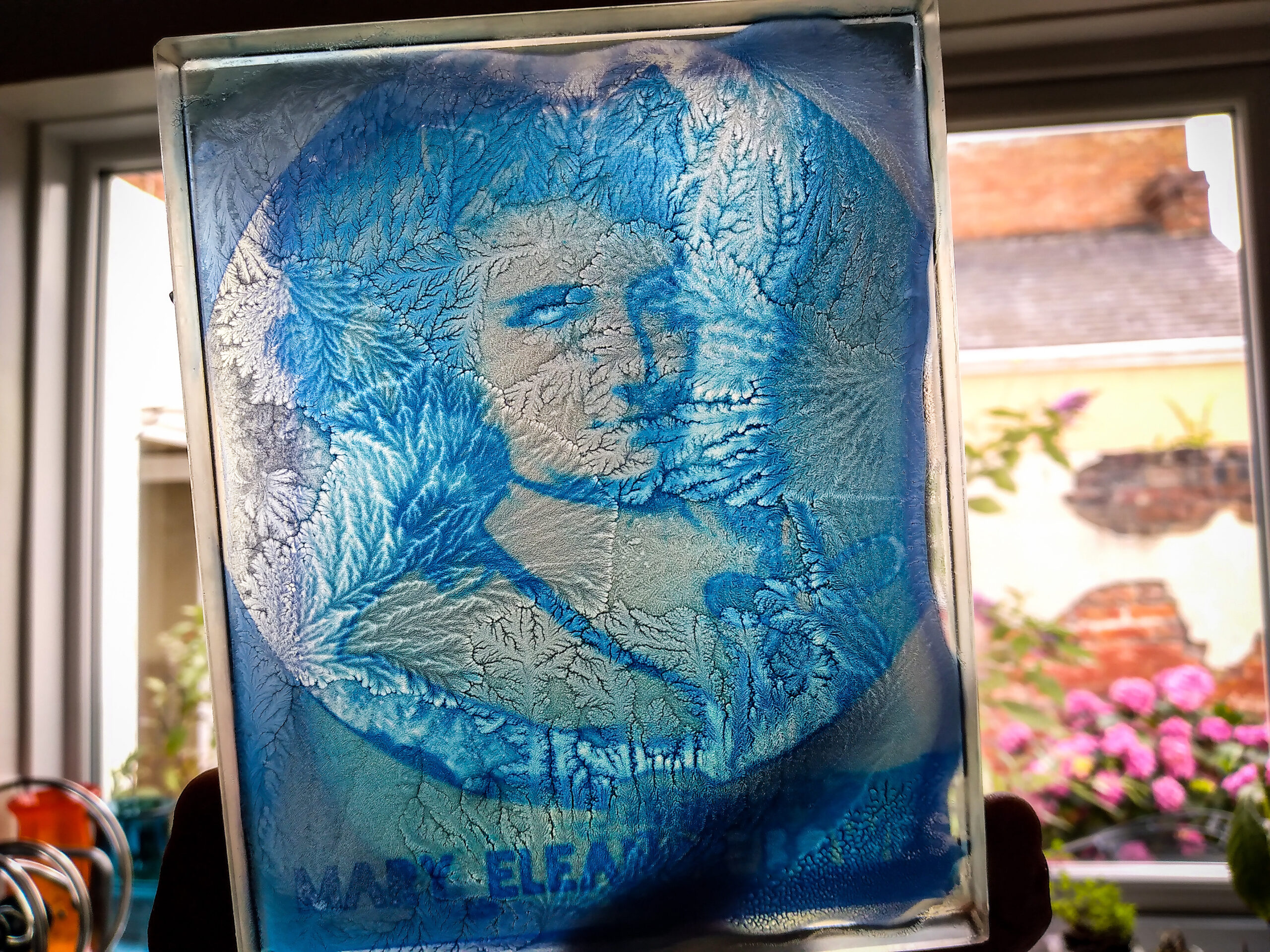
I interviewed Jo Howell who says about herself: “I’ve been a professional photographic artist since I left Uni in 2009. I am a cyanotype specialist.
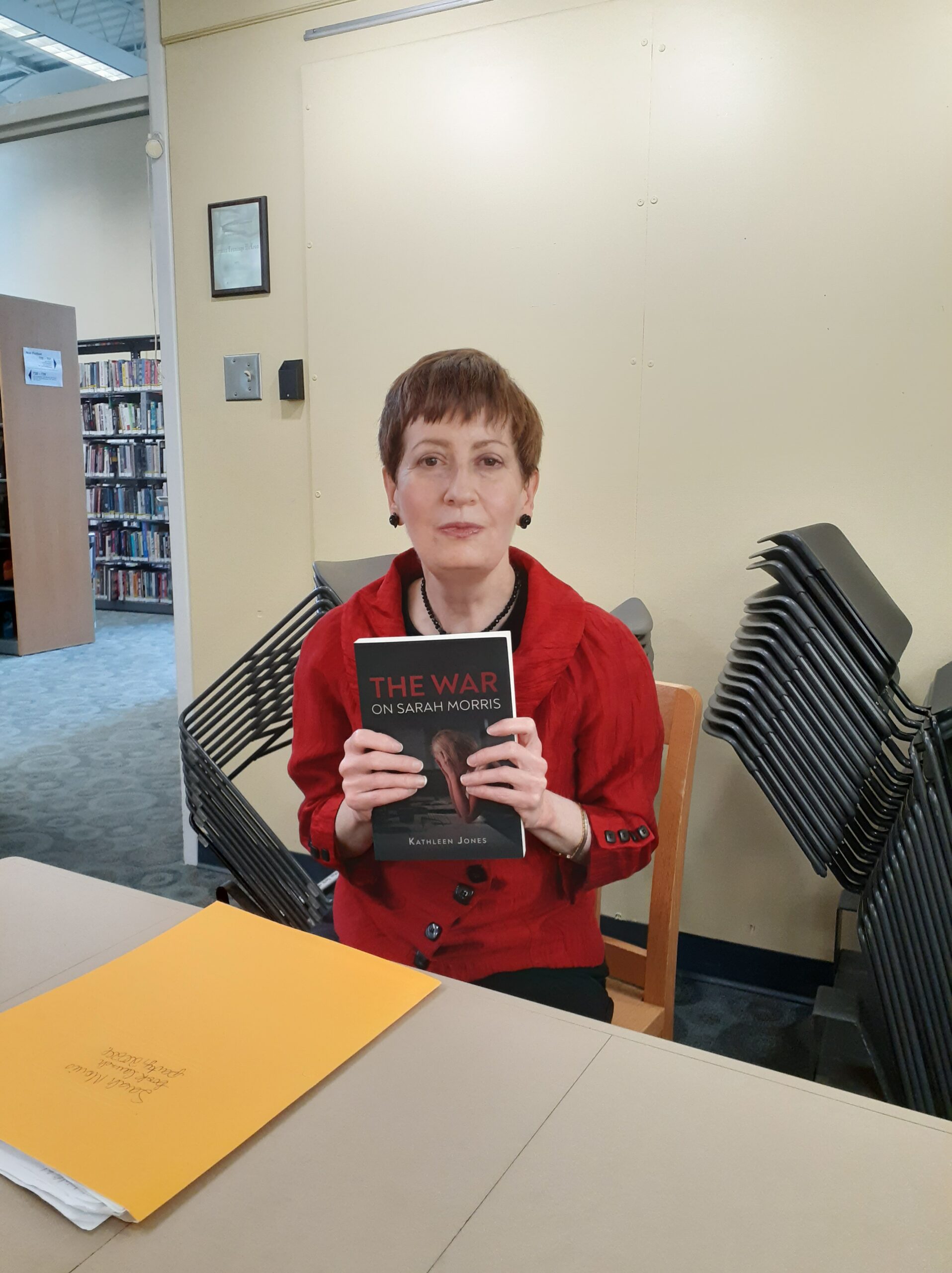
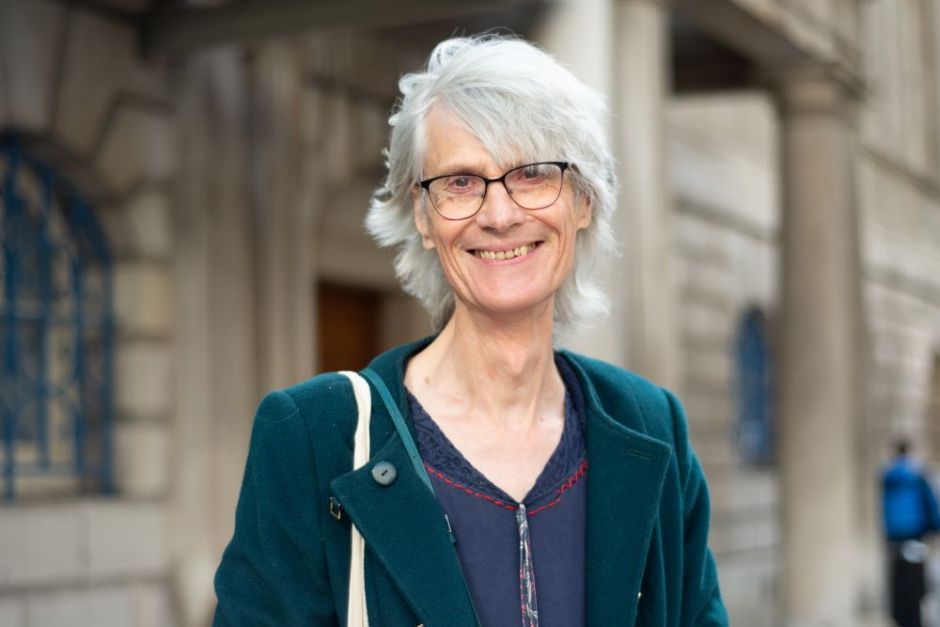
Poet Tracey Rhys, writer of Teaching a Bird to Sing and winner of the Poetry Archive’s video competition reviews Ways To Be Equally Human. Tracey,
| Cookie | Duration | Description |
|---|---|---|
| cookielawinfo-checkbox-analytics | 11 months | This cookie is set by GDPR Cookie Consent plugin. The cookie is used to store the user consent for the cookies in the category "Analytics". |
| cookielawinfo-checkbox-functional | 11 months | The cookie is set by GDPR cookie consent to record the user consent for the cookies in the category "Functional". |
| cookielawinfo-checkbox-necessary | 11 months | This cookie is set by GDPR Cookie Consent plugin. The cookies is used to store the user consent for the cookies in the category "Necessary". |
| cookielawinfo-checkbox-others | 11 months | This cookie is set by GDPR Cookie Consent plugin. The cookie is used to store the user consent for the cookies in the category "Other. |
| cookielawinfo-checkbox-performance | 11 months | This cookie is set by GDPR Cookie Consent plugin. The cookie is used to store the user consent for the cookies in the category "Performance". |
| viewed_cookie_policy | 11 months | The cookie is set by the GDPR Cookie Consent plugin and is used to store whether or not user has consented to the use of cookies. It does not store any personal data. |
3 responses
Fantastic articles on Hannah’s work. You have beautifully facilitated her eloquent responses on how she works and her relationship to poetry. She’s such a brilliant poet and deserves recognition.
Thank you, Rachael!
Fantastic articles on Hannah’s work. You beautifully facilitate her articulate responses on her approach to writing and her relationship to poetry. She’s a brilliant poet and deserves recognition.